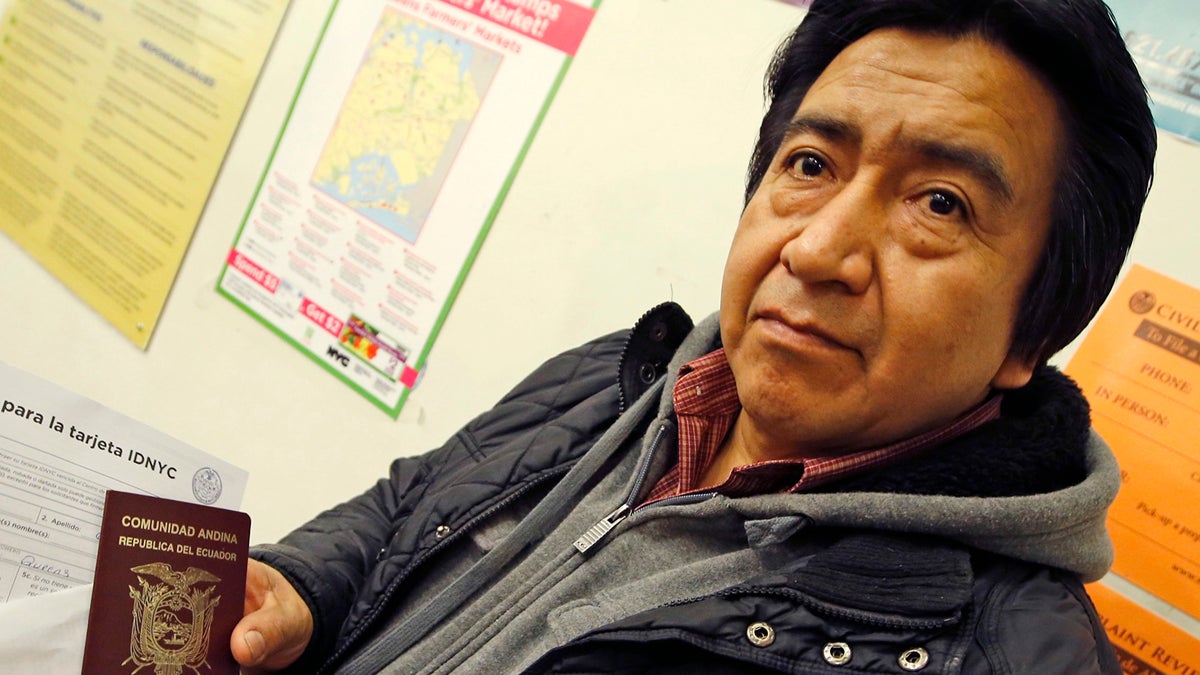Reading officials ponder issuing municipal ID cards

Luis Gordillo
On Monday, Reading City Council will hear a proposal to introduce municipal ID cards, locally-issued government IDs that can be used for everything from opening a bank account to picking up a prescription.
Reading is the most recent Pennsylvania city to consider the service, which advocates say help immigrants, the elderly and people with disabilities access services.
According to 2010 Census figures, 40 percent of Reading residents live in poverty, and one of out of five people were born in another country. These groups are all less likely to have driver’s licenses or state-issued IDs say advocates of the policy, who believe it will allow more Reading residents to participate more fully in the city’s economy.
“I think it’s clear that when people have identification they are able to do things that they can’t currently do, that will benefit the city economically,” said Adanjesus Marin, executive director of advocacy group Make the Road Pennsylvania, the group pitching the policy to Reading officials.
That city is currently on the state’s watch list for municipalities in financial distress, meaning economic challenges have kept it from delivering some mandated services.
“I need to learn more, but I’m supportive of the concept if it would help people,” said Donna Reed, vice president of Reading’s city council. She said her concerns include cost and potential “redundancy” with state-issued ID cards, which U.S. citizens and permanent residents can obtain from the Department of Transportation if they do not drive.
Marin said the cost would be defrayed by an application fee, and that it is simply not feasible for many people in poverty to get together the documents needed to obtain a state-issued ID. Under Make the Road’s proposal, a wider range of documents could be used to ascertain people are who they say they are. Critics of municipal ID programs raise several potential problems. Are the cards a way of being too lenient on people living in the country illegally? Will the IDs stigmatize those people if the cards are not widely used. Could it even be a defacto outing of people not in the U.S. legally?
Still, Reading is not the only city in the commonwealth considering the policy. Pittsburgh has solicited bids for a feasibility study on its own municipal ID program, and Philadelphia Mayor Jim Kenney listed the cards as a part of his transition plan.
Nationally, New York City, New Haven, Connecticut, Trenton, New Jersey and most recently Detroit, Michigan joined the ranks of more than 10 American municipalities, large and small, to adopt their own ID cards. To make them attractive to all residents, places like New York have tied the cards to perks, like access to various cultural institutions.
WHYY is your source for fact-based, in-depth journalism and information. As a nonprofit organization, we rely on financial support from readers like you. Please give today.

